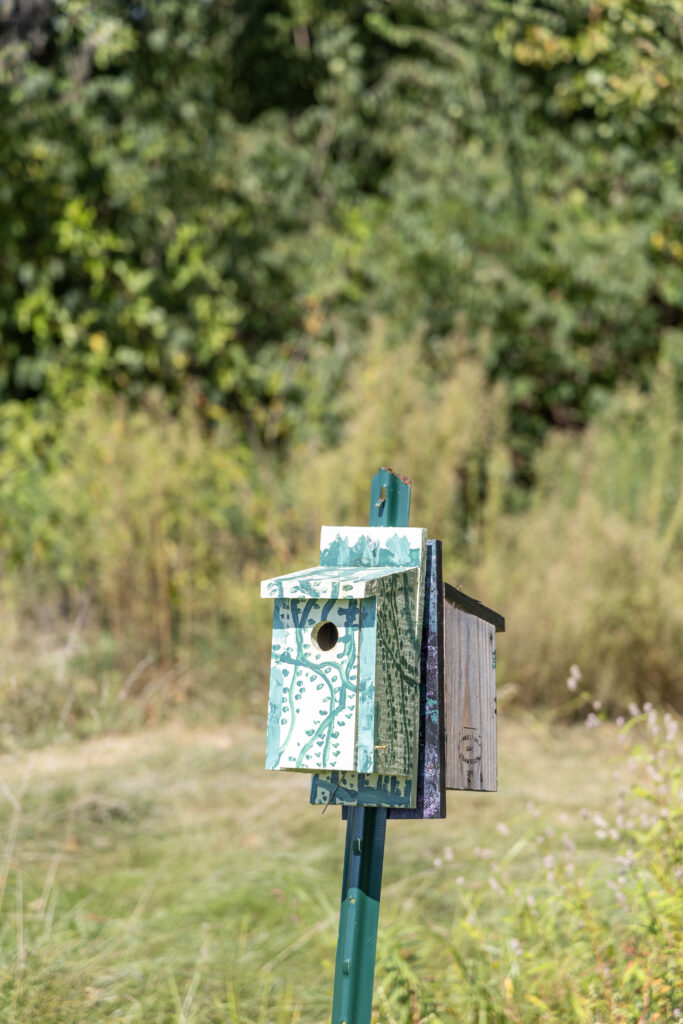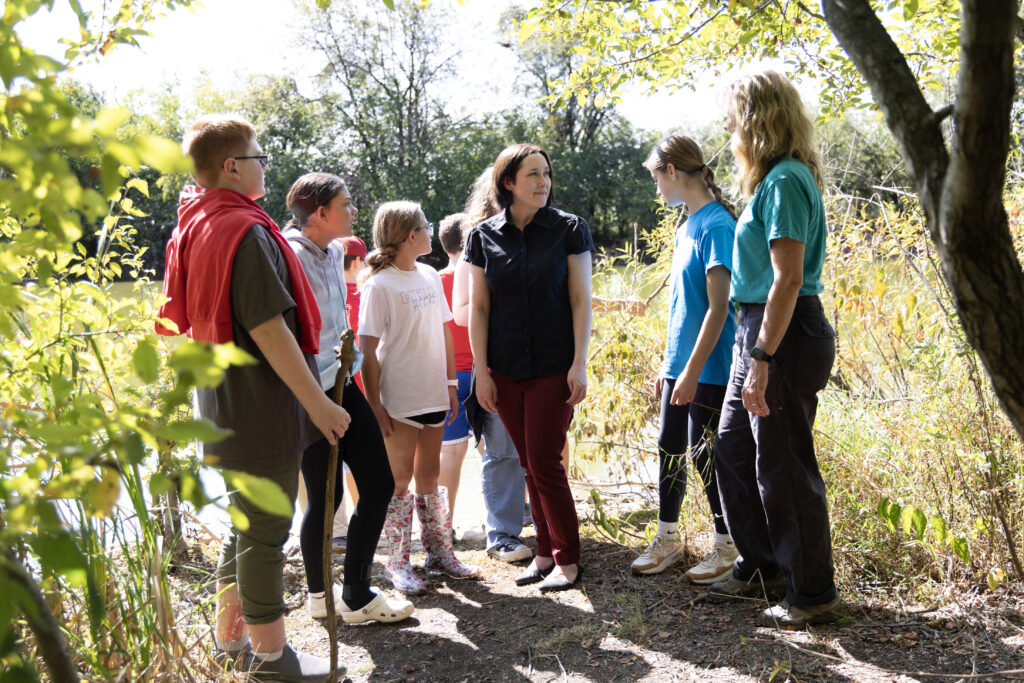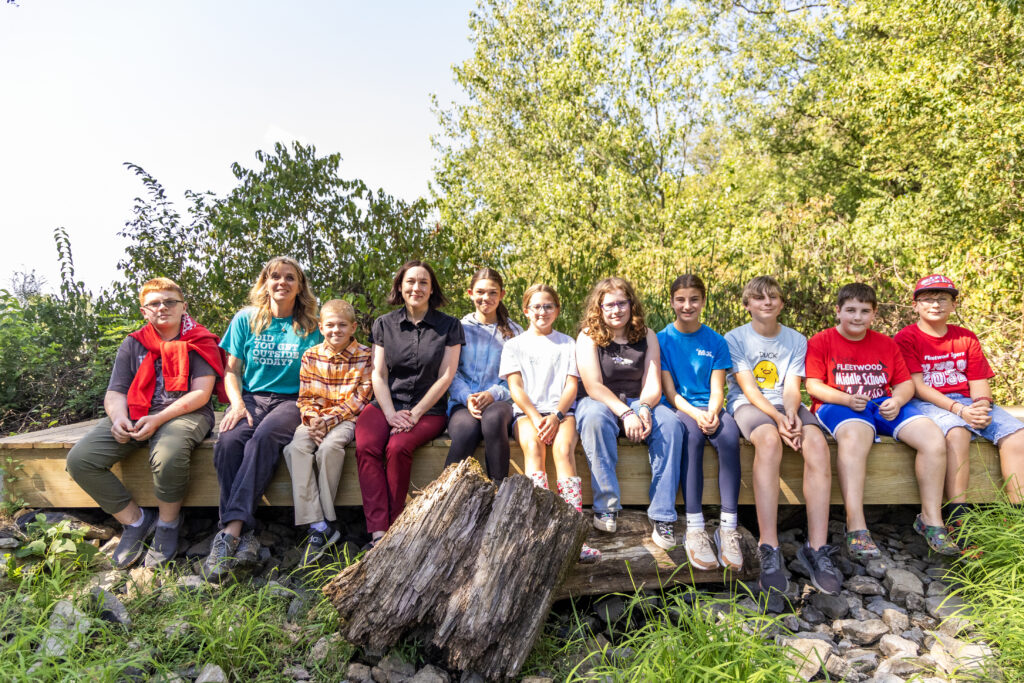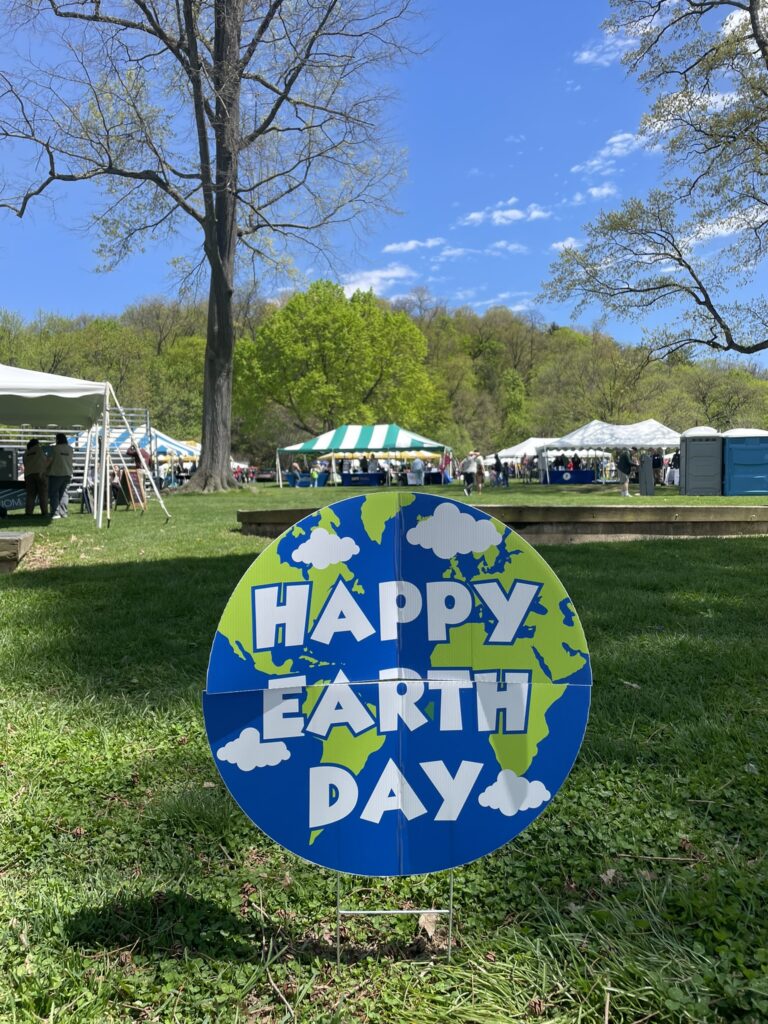The Met-Ed/Penelec Sustainable Energy Fund (SEF) seeks three nominees for its volunteer Advisory Board.
The Met-Ed/Penelec SEF distributes funds to promote the development and use of renewable energy and clean energy technologies, energy conservation and efficiency, and projects that improve the environment in the Met-Ed and Penelec service territories. The Met-Ed/Penelec SEF is co-managed by the Berks County Community Foundation and the Community Foundation for the Alleghenies, respectively.
The funds are seeking nominations for the following positions:
- Weatherization
- Commercial Customer
- At-Large
The Advisory Board consists of no fewer than seven and no more than nine positions. Board members can serve six two-year terms. The Advisory Board meets four times per year on a quarterly basis. Meetings are typically held via Zoom, with the possibility of in-person meetings within the Met-Ed and Penelec rate districts.
For consideration, candidates should meet the following criteria:
- Be a resident of Pennsylvania that is affiliated with the Met-Ed or Penelec rate district.
- Have interpersonal skills that foster a creative and positive work environment for Board meetings.
- Have the ability to work with fellow board members and fund staff to evaluate incoming projects and programs for their mission-fit, participate in technical and financial due diligence discussions, and determine project impact.
- Have demonstrated experience in working with Pennsylvania’s sustainable energy sector.
Interested candidates should submit a brief letter of interest and a resume to Emily Smedley (Berks County Community Foundation/Met-Ed) or Mark Keim (Community Foundation for the Alleghenies/Penelec.) Their contact information is below. The letter should provide details on how the candidate fulfills the nomination criteria and the skills they bring to the advisory board. The resume should provide contact information and the candidate’s educational and work experience.
Nominations should be submitted by Friday, November 7, 2025.
All candidates will be notified via email upon receipt of their letter of interest and resume. The advisory board will submit the successful nominee(s) to the Pennsylvania Public Utilities Commission for final approval.
Contact Information
In the Met-Ed rate district, please contact Emily Smedley:
Environment and Energy Program Officer, Berks County Community Foundation
Fund Manager, Met-Ed Sustainable Energy Fund
Emilys@bccf.org
In the Penelec rate district, please contact Mark Keim:
Program Officer, Community Foundation for the Alleghenies
Fund Manager, Penelec Sustainable Energy Fund
mkeim@cfalleghenies.org
This announcement is made in keeping with the best practices of the Pennsylvania Sustainable Energy Board (PASEB) and is being distributed on the websites of the Public Utility Commission and the Met-Ed / Penelec Sustainable Energy Fund, as well as relevant newsletters and other sources. This notice may be forwarded to interested parties.
Reading, PA (June 23, 2025) – Berks County Community Foundation granted $102,500 to support 10 local projects that will address critical environmental challenges, promote sustainable practices, and build collaborative partnerships. Grants were made from the Innovation Fund of Berks County Community Foundation, which supports projects that improve environmental health and climate resiliency in Berks County.
The 2025 grants include:
- $1,000 to Albany Township for community park improvements
- $6,000 to the Berks Recycling Coalition to support the Berks County Earth Day event
- $15,000 to Berks Nature to support municipal outreach and collaboration
- $12,500 to Berks Nature for planning and restoration work with watershed associations
- $5,000 to the Borough of Lyons for stream restoration planning at Lyons Borough Park
- $15,000 Delaware Riverkeeper Network to support environmental leadership development
- $12,000 to PennEnvironment Research and Policy Center to support clean energy work in Berks County
- $12,000 to Student Conservation Association for the Reading Conservation Corps
- $12,000 to What’SUP Berks Initiative to reduce single use plastics throughout Berks County
- $12,000 to Widoktadwen Center for Native Knowledge to build an indigenous ecological education garden
“These grants will deliver vital support for local initiatives tackling urgent environmental issues, advancing sustainable solutions, and strengthening our community’s ability to adapt to the growing impacts of climate change,” said Emily Smedley, Environment and Energy Program Officer at Berks County Community Foundation.
To learn more about The Innovation Fund, please visit https://bccf.org/funds/the-innovation-fund/.
The Building Industries Exchange of Reading and Berks County Fund supports the construction or renovation of facilities owned by or for charitable organizations in Berks County. To be considered for funding, organizations must fill out a Letter of Intent (LOI) form. LOIs will typically be reviewed within 14 days of submission. If the project meets the fund’s mission, the Community Foundation will invite the organization to submit an official application.
LOIs and applications are accepted on a rolling basis when funding is available. There is currently $65,000 in funding available, with grants typically ranging from $10,000 to $25,000. Before starting an LOI, organizations should review the Community Foundation’s grantee standards on the website.
Since this fund was established in 2013, nearly $300,000 has been awarded to 48 organizations and individuals in Berks County.
The construction and building industries are essential to economic development and community well-being. With advancements in sustainable building practices, energy efficiency, and modern construction techniques, the industry is evolving rapidly.
To learn more about the Building Industries Exchange of Reading and Berks County Fund visit: https://bccf.org/funds/building-industries-exchange-of-reading-and-berks-county-fund-2/.
The Building Industries Exchange of Reading and Berks County Fund is one of the many funds managed by Emily Smedley, our Environment and Energy Program Officer. Emily leads initiatives supporting environmental health, sustainable energy, and community vitality in Berks County. To learn more about Emily’s role, click the video below.
The Fleetwood Area School District’s Nature Center Restoration project is not just focused on creating a beautiful outdoor space on school grounds. This student-led restoration of an outdoor learning environment will provide access to environmental education opportunities, connecting students to nature and their surrounding community.
The outdoor learning environment will serve as a classroom complete with picnic style tables, providing students with hands-on experiences to spark a lifelong interest in environmental stewardship. The project leaders plan to create signage to identify key educational aspects of the Nature Center including tree and animal species identification and watershed information. They aim to help native plants and birds reclaim portions of their habitat by building floating island structures and birdhouses.




During a recent visit, we were fortunate enough to witness not only a baby blue heron basking in the sun, but also the pride and excitement from the students who have worked so hard to get things started at the Nature Center. After extensively researching native plants, students selected species such as spatterdock, duck potato, and swamp milkweed to add to the land and water. It was truly inspiring to see the students channel their creativity and innovation into a project that will have such a positive impact on the community.
The goal of the project is to help students gain skills in leadership, teamwork, communication, problem solving, and project management. What makes this project particularly special is its student-led approach. The Fleetwood Area School District is committed to empowering these students in grades 5-12 by allowing them to lead the efforts.
“Whether it is a fifth-grade teacher demonstrating the water cycle for his/her class, or the AP Biology students visiting the pond to assess habitat health by chemically testing the quality of the pond water, it will be an outdoor classroom that will be used in a wide variety of ways,” Dr. Natalie Lytle, Director of Curriculum and Assessment at Fleetwood Area School District said about the impact the classroom will have.
This hands-on experience will also instill a sense of responsibility and ownership among students. They will witness firsthand the impact of their efforts, making the lessons learned in the classroom come alive in a real-world context.
Funding for this project came from the Teacher Mini-Grants Fund of Berks County Community Foundation, which provides grants up to $500 for Berks County K-12 school employees to support innovative classroom projects. Applications are now being accepted until December 1 for the 2024-2025 school year. For more information about the fund, please click here.
PITTSBURGH – (July 23, 2024) – Green Building Alliance (GBA) will launch its newest program, Resilient Communities, in Meadville and Reading, Pa., providing both communities with a range of services to help reduce energy demand, cut utility costs, and increase energy efficiency and resiliency for the municipal buildings, commercial facilities, and nonprofit and educational institutions within each region.
The Resilient Communities program is made possible through support from the Metropolitan Edison/Pennsylvania Electric Company Sustainable Energy Fund (Met-Ed/Penelec Sustainable Energy Fund).
Offered at no cost to participating community partners, the three-year Resilient Communities program of services will augment larger community and economic goals by enabling buildings, infrastructure, and the entire communities of Meadville and Reading to be more resilient to the effects of extreme weather and emergency events; reduce energy and water utility costs; and facilitate making each community safer, more affordable, and attractive to residents, business owners, and prospective investment.
Working with Meadville and Reading project partners, GBA will:
- Provide tailored technical support and guidance to assess opportunities for energy and water efficiency improvements in municipal buildings, saving on utility costs and freeing up dollars to be reinvested elsewhere;
- Facilitate growth of quality jobs in fields that support resiliency and energy efficiency initiatives, such as operating engineers, facilities managers, heating, ventilation, air conditioning and refrigeration (HVAC/R) technicians, electricians, and renewable energy technicians;
- Increase community vitality by reducing operational costs and improving the health and quality of small businesses, community anchor institutions, local government buildings, schools, and commercial facilities;
- Open doors to new financial resources by providing grant writing assistance to pursue community resilience and energy-efficiency funding opportunities.
“We are grateful to the Met-Ed/Penelec Sustainable Energy Fund for making this expansion of GBA’s work into the communities of Meadville and Reading possible,” says GBA COO Chris Cieslak. “By investing in building infrastructure, this project will equip both communities for energy and resource stability in the face of unforeseen emergency events and market volatility. It will also facilitate modifications to reduce utility costs and make each community’s buildings safer, more affordable and more attractive to residents, business owners, and to capital investment.”
GBA will work with community partners, including Generation180 who also was awarded 2024 support under this fund. Generation180 inspires and equips K-12 schools in PA communities to adopt clean, renewable energy and improve energy reliability. With support from the Met-Ed/Penelec Sustainable Energy Fund, Generation180 offers free technical assistance to schools in PA communities interested in exploring solar energy. Schools can utilize solar energy systems with battery storage to create resilient campuses that can keep schools operating and support community needs during grid outages and extreme weather events.
“Generation180 is thrilled to work with GBA and Met-Ed/Penelec Sustainable Energy Fund to help K-12 schools in Reading, Meadville, and throughout Pennsylvania access the benefits of clean, affordable energy,” stated Shannon Crooker, Generation180 Pennsylvania Director. “There’s never been a better time for schools to take advantage of the historic federal grants and incentives to install clean energy technologies that support healthy, resilient communities.”
The Resilient Communities program builds on GBA’s successful work in Erie, which has logged a shared utility savings of over $17 million across 20 public-private partners since partnering with GBA. GBA provided technical guidance and support for the development of the City of Erie Central Fire Station’s solar grid and battery project, allowing the fire station to serve as a community resilience hub in the event of climate disaster or grid outages. The fire station’s on-site solar array produces over 100% of the station’s energy needs, while battery storage guarantees uninterrupted emergency management operations during an outage. GBA has also partnered with Forest Hills Borough, which enacted a net-zero ordinance for their community. Forest Hills is leading the way for other communities by conducting wide-scale energy retrofits in its eight-property portfolio and recently completed one of Southwestern Pennsylvania’s first net-zero buildings.
“We’re excited to support GBA and Generation180’s work to expand energy efficiency and renewable energy throughout Pennsylvania,” says Davitt Woodwell, chair of the advisory committee for the Met-Ed/Penelec Sustainable Energy Fund and former president of the Pennsylvania Environmental Council. “The committee wanted to drive sustainable energy solutions that will leave a positive impact on our communities and saw no better way than to make grants to two organizations that are already making huge impacts across the state.”
“The City of Meadville is excited to be named a Resilient Community and for the good work that is sure to result from the partnership with GBA,” says Autumn Vogel, City of Meadville Councilmember and liaison to the City’s Environmental Advisory Committee. “This program will help us achieve goals set in our Climate Action Plan for a safer, healthier, more resilient Meadville. Through this partnership, we’ll get much needed support to make improvements to our aging building stock, making the people of Meadville safer and more comfortable in their homes and buildings, while helping residents, community partners, and local businesses save money. It’s a win-win-win. We’re eager to get started and grateful for the opportunity.”
“I’m very excited to partner with the Green Building Alliance. This partnership will increase our capacity and provide critical technical assistance to our community partners, businesses, schools, and our staff as we are working towards our Reading for 100 goal of 100% clean, renewable energy by 2050,” says Reading Mayor Eddie Morán. “The City of Reading and many of our community partners have begun the transition process, and working with GBA will help facilitate and expedite a just transition. We are big fans of Erie’s success and are looking to duplicating it in Reading.”
Media Contacts:
Laura Ellis, Green Building Alliance, 412.952.7844, laurae@gba.org
Erica Caceres, Berks County Community Foundation, 610.685.2231, ericac@bccf.org
About Green Building Alliance:
Green Building Alliance (GBA) positively transforms the world through the built environment to create a sustainable, healthy, and just future for everyone. As Western Pennsylvania’s authority on sustainable design, GBA drives the market for healthy communities while equipping designers, manufacturers, developers, and policymakers to catalyze systemic change. GBA manages the largest 2030 District in North America (the Pittsburgh 2030 District), and in 2019, established Pittsburgh as the 2nd International Center of Excellence on High Performance Building in the world. GBA partners across Western Pennsylvania, with strategic alliances including the 2030 District Network, United Nations and International Living Future Institute.
About The Metropolitan Edison/Pennsylvania Electric Company Sustainable Energy Fund
The Sustainable Energy Funds were created as a result of electric utility deregulation and subsequent settlement agreements by Pennsylvania Electric Utilities. The funds are designed to promote the development of sustainable and renewable energy programs and clean-air technologies on both a regional and statewide basis. Two of those funds, the Metropolitan Edison Company Sustainable Energy Fund (Met-Ed Sustainable Energy Fund) and the Pennsylvania Electric Company Sustainable Energy Fund of the Community Foundation for the Alleghenies (Penelec Sustainable Energy Fund), began distributing money in the form of grants, loans, and equity investments for a variety of projects within the territories originally served by the two electric companies. The two funds share an advisory committee and are commonly referred to in the singular as the Met-Ed/Penelec Sustainable Energy Fund. Since inception in 2000, the Met-Ed/Penelec Sustainable Energy Fund has approved 279 grants totaling $7,209,518; 51 loans totaling $25,161,087; and three equity investments totaling $1,600,000. Total funding since inception is more than $33.9 million.
About Berks County Community Foundation
Berks County Community Foundation is a nonprofit corporation serving as a civic leader for our region by developing, managing, and distributing charitable funds to improve the quality of life in Berks County, PA. More information is available at www.bccf.org.
The University of Pittsburgh at Bradford received one of 22 Governor’s Awards for Environmental Excellence for a rooftop solar array on the George B. Duke Engineering and Information Technologies Building.
This project was funded in part by support from the Metropolitan Edison/Pennsylvania Electric Company Sustainable Energy Fund, which is managed by Berks County Community Foundation and the Community Foundation for the Alleghenies respectively. Since its inception in 2000, this fund has awarded more than $33.9 million to sustainable energy projects in the area served by the Met-Ed and Penelec service territories in Pennsylvania.
The Metropolitan Edison/Pennsylvania Electric Company Sustainable Energy Fund granted $230,000 to support the installation of a 100 kilowatt-plus solar array on the rooftop of the George B. Duke Engineering and Information Technologies Building.
“Pitt-Bradford is committed to environmental and economic sustainability as well as providing leadership and service to our local and regional communities,” said Richard Esch, president of Pitt-Bradford. “This project not only generates energy to help supplement the power needs of the Duke Building, it also provides an educational tool for our campus and the community about the importance of sustainability and renewable energy.”
This solar array was installed and working in March 2023 and to date has generated over 60 megawatt hours of green electricity for Pitt-Bradford. In addition, the solar array is the largest rooftop solar array in the University of Pittsburgh system, and it provides over 40% of the Duke Building’s electricity.
More details on the project are available here.
Every year, Earth Day is celebrated across the globe with tree plantings, festivals, and various volunteer activities that remind us of our collective responsibility to steward the natural environment and limit impacts on the earth.
The Berks County Earth Day Committee hosts an Earth Day celebration every year to bring the community together and educate about environmental and conservation subjects while encouraging participants to make sustainable choices. Thousands of people gathered in City Park on April 20 to enjoy live music and food from local vendors and participate in a range of educational activities from planting seeds and trees to litter clean ups to wildlife demonstrations.
“The pure joy of seeing little ones bouncing from booth to booth, learning about our Earth, made my heart smile. They’re the future of our planet, and their enthusiasm gives me hope for a brighter tomorrow,” said Lazarely Martinez, a first-time attendee of the Earth Day celebration in City Park.
The Youth Volunteer Corps held a table at the event that promoted planting vegetables in a bag. The bag was recyclable, and dirt was donated from Ridgewood Soils in Birdsboro. Kids of all ages were instructed to scoop dirt into their bags and then were provided with lettuce or spinach seeds to plant in the soil. Participants were encouraged to place the bags in sunlight and watered regularly. When leaves start to sprout, they can be cut and are ready to be eaten.
“I like spinach because it makes me feel strong and planting it makes me feel like a farmer,” said Avian Robles, an 8-year-old student at Muhlenberg Elementary Center after planting his spinach planted bag.
At the Community Foundation, our goal is to keep Berks County a beautiful place by supporting projects and programs that recognize the value of our open space and provide education on how to reduce our impact on the planet. The Earth Day celebration was made possible by the Hawley and Myrtle Quier Fund of Berks County Community Foundation. This fund makes distributions to improve the quality of life for the residents of Berks County. This support not only benefits the present generation but also lays the foundation for a more sustainable future for generations to come.




Earlier this year, more than 45 Berks County leaders met with the Community Foundation to talk about community resiliency and environmental health. The leaders hailed from government agencies, nonprofit organizations, and local businesses whose work focuses on critical issues such as stormwater management, land conservation and preservation, health, transportation infrastructure, and the built environment.
We were joined by experts from the Institute for Conservation Leadership (ICL), who posed a series of questions aimed at determining ways the Community Foundation could deploy its resources to address environmental issues in Berks County.
Based on the answers to those questions, ICL made three recommendations:
- Support collaboration and create a series of regular interactions to ensure information and ideas are being exchanged.
- Create an innovation fund to put money behind collaborative and pilot projects that improve community resiliency and environmental health in Berks County.
- Pay for additional research when needed to ensure a full understanding of the often-complex geographic and human interconnectivity of local environmental issues.
We look forward to continuing this work and providing space for these important conversations to happen. For now, click here to learn more about this project and to read the full set of recommendations.
(August 21, 2023) – JOHNSTOWN, PA – The Metropolitan Edison/Pennsylvania Electric Company Sustainable Energy Fund (Met-Ed/Penelec Sustainable Energy Fund) announced today that a new funding opportunity is available to nonprofit and for-profit organizations. Effective immediately, the fund will offer program-related investments (PRIs) to organizations within the Met-Ed and Penelec territories in Pennsylvania.
The Met-Ed/Penelec Sustainable Energy Fund, developed to provide funding for sustainable energy-efficiency and clean energy technology development, will offer PRIs typically ranging from $50,000 to $100,000 to projects that fulfill the mission of the fund. Program-related investments are low-interest loans, which provide capital that must be paid back. Loans will be offered at 4-6 percent interest with a maximum 10-year payback period. The final interest rate, loan term, and loan amount will be determined by the fund’s advisory committee in partnership with professional loan advisors at JARI Growth Fund, a certified Community Development Financial Institution (CDFI).
“The committee wanted to create a bigger impact than ever before with this funding,” says Davitt Woodwell, chair of the advisory committee for the Met-Ed/Penelec Sustainable Energy Fund and president of the Pennsylvania Environmental Council. “By offering larger pools of funding, we can drive sustainable energy solutions that will leave a positive impact on our communities. And by offering loans, we can use the money that is paid back for more projects in the future. We are excited to see the outcomes of the projects.”
With increased funding currently available for these types of projects from various sources, such as the federal and state government, this PRI opportunity will continue to move the needle on developing sustainable and renewable energy programs and clean-air technologies as the Met-Ed/Penelec Sustainable Energy Fund has since its inception.
Learn about the application process and criteria at https://bccf.org/met-ed-penelec-sustainable-energy-fund-loan-opportunity/.
The Met-Ed/Penelec Sustainable Energy Fund is administered by Berks County Community Foundation and the Community Foundation for the Alleghenies respectively. For further information, contact one of the following staff members whose location is closer to your organization and/or project:
Angie Berzonski, Community Foundation for the Alleghenies, Johnstown, Pa.: aberzonski@cfalleghenies.org, 814.315.2982
Emily Smedley, Berks County Community Foundation, Reading, Pa.: emilys@bccf.org, 610.685.2223
###
The Metropolitan Edison Company Sustainable Energy Fund of Berks County Community Foundation and the Pennsylvania Electric Company Sustainable Energy Fund of the Community Foundation for the Alleghenies distribute funding for a variety of projects within the territories originally served by the two electric companies. The two funds share an advisory committee and are known in the singular as the Met-Ed/Penelec Sustainable Energy Fund. More information available here: https://bccf.org/funds/sustainable-energy-fund/.
Community Foundation for the Alleghenies (CFA) is a public, nonprofit foundation that manages funds to strengthen communities in Bedford, Cambria, Indiana, and Somerset counties. CFA empowers individuals to become philanthropists, donors to make meaningful change, and caring citizens to design a legacy. For more information, visit www.cfalleghenies,org.
Berks County Community Foundation is a nonprofit corporation serving as a civic leader for the region by developing, managing, and distributing charitable funds to improve the quality of life in Berks County, PA. More information is available at www.bccf.org.
Formed in 2016, the JARI Growth Fund (JGF) is a certified CDFI (Community Development Financial Institution) and equal opportunity lender which supports low-to-moderate income individuals, minorities, woman-owned entities, and people with disabilities throughout the Southern Alleghenies region. JGF provides capital encouraging a diverse economy, building vibrant communities, enhancing the quality of life for residents of the region, improving housing, and addresses the needs of unserved, underserved, and minority communities throughout the region. More information is available at https://www.jari.com/.
Contact: Erica Caceres, Communication Manager, Berks County Community Foundation,ericac@bccf.org, 610-685-2223
READING, PA – The Met-Ed / Penelec Sustainable Energy Fund seeks nominees for its Advisory Board.
Through grants and program-related investments, the funds promote the development and use of renewable energy and clean energy technologies, energy conservation and efficiency, sustainable energy businesses, and projects that improve the environment in the companies’ service territories.
The Advisory Board consists of not fewer than seven nor more than nine positions. The term of a board member is two years and members may serve a total of six terms.
The funds are seeking nominations for the following positions:
- A representative from an electricity supplier
Interested parties are eligible for nomination and consideration by the Advisory Board. Candidates for nomination to the Advisory Board will be evaluated in terms of the following criteria:
- Experience and skills related to specifically slotted positions
- An understanding of and empathy for mission-related decision-making in keeping with prudent financial considerations
- Ability to work collaboratively and with people with divergent interests
- Able to meet by conference call or in-person (when appropriate) at various Pennsylvania locations up to six times per year
This announcement is made in keeping with the best practices of the Pennsylvania Sustainable Energy Board (PASEB) and is being distributed on the websites of the Public Utility Commission and the Met-Ed / Penelec Sustainable Energy Fund, as well as relevant newsletters and other sources. There is no financial compensation for Board service. This notice may be forwarded to interested parties. Nominations will be accepted through November 30, 2022.
Interested parties should contact Berks County Community Foundation at 610.685.2223 or the Community Foundation for the Alleghenies at 814.536.7741.


